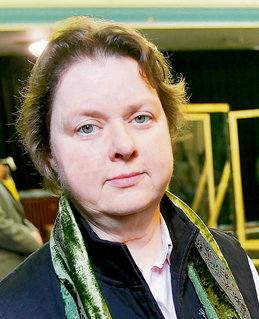Journalist Confronted Issues of Sex Abuse and Cover-up
Irish Times
Mary Raftery THERE’S A good deal of old guff handed out to young journalists in the guise of advice to guide them in their careers. The best of it emphasises getting the facts right, comforting the afflicted and afflicting the comfortable, and possibly making a difference if you work hard and get lucky. Mary Raftery, a journalist best known for her television work, had succeeded on all those counts when she died in Dublin aged 54 earlier this week. Her singular achievement was to force Ireland to confront the fact that clergy had been sexually abusing children entrusted to their care, and that senior Catholic Church figures had conspired to cover this up. She was not the first in the field, as RTE historian John Bowman has noted. Cathal Black’s independent documentary from 1980, Our Boys , dealt with traumatised former pupils of the Christian Brothers. Veteran TV director Louis Lentin’s 1996 drama documentary Dear Daughter vividly exposed cruelty at a Dublin orphanage run by nuns. But it was the work of Mary Raftery “which brought the conspiracy of silence which had protected the [Catholic] church in the 20th century to a dramatic end”, as historian Tom Garvin put it. Her work and that of her longtime collaborator and researcher Sheila Ahern was thorough, and it stuck. When RTE broadcast Raftery’s States of Fear TV documentary series in 1999, confronting viewers and politicians with evidence of physical and sexual abuse suffered by children in residential institutions, there was to be no turning back. The Ryan commission of inquiry into child sex abuse was set up, as was the Residential Institutions Redress Board. In 2002, her Cardinal Secrets TV programme led to the setting up of the Murphy commission of investigation into clerical sex abuse of children in the Catholic Archdiocese of Dublin, later extended to the Cloyne diocese. A Dubliner, she was one of four children of a diplomat. She had lived in France, but returned to Ireland when about 12. She took an interest in journalism at UCD in the 1970s, along with contemporaries Fintan O’Toole, Aidan Dunne and David Waddell, the student union president whom she was to marry. She would also abandon her engineering studies. Her subsequent career included writing for In Dublin and Magill magazines, before she joined RTE as a producer in 1984. She became a freelance television producer and journalist as of 2004, and later wrote for The Irish Times . Her body of work in RTE included an award-winning investigation into property magnate Patrick Gallagher, and an expose of terrorism in Mozambique. Her interest in what happened behind the closed doors of residential institutions appears to have begun with a lengthy feature article she wrote for Magill magazine in 1983 about the notorious Dunne criminal family who were active in Dublin in the 1970s and 1980s. Her conversations with the younger Dunnes revealed a pattern of brutality experienced in industrial schools, places of detention for young offenders run by religious orders, and this stayed with her. Afflicting the comfortable throws up enemies, however. States of Fear , and the subsequent Suffer the Little Children , a book co-authored with Eoin O’Sullivan, attracted the hostility of those who saw in her an enemy of the Catholic Church. Archbishop Diarmuid Martin of Dublin, speaking after her death, answered her critics, saying her work had “contributed to the [Catholic] church being a better place for children”. Her Irish Times columns were praised for their research and lucidity, but some friends doubted whether print was the best medium for her talents. That said, her analyses of the Ryan, Murphy and Cloyne reports for the newspaper were searing, authoritative pieces of journalism. She returned to TV last year with Behind the Walls , a documentary examination of the history of psychiatric hospitals in Ireland, with a promise of more challenging programming to come. This was not to be, however, as Raftery was diagnosed with cancer 18 months ago. She worked throughout the treatment until she could work no more. She was a keen supporter of Leinster rugby, and continued to attend matches through her illness. Her play No Escape was commissioned for a Peacock theatre season in 2010, dealing with the abuse of children. She also kept up her interest in music, in particular opera, although her cello playing fell by the wayside over the years. This was to the regret to those who fondly remember her and friends from the College of Music introducing a bemused Dublin public to classical music busking in the 1970s. She is survived by her husband David Waddell, secretary of the Standards in Public Office Commission, and son Ben.
|
.
Any original material on these pages is copyright © BishopAccountability.org 2004. Reproduce freely with attribution.
